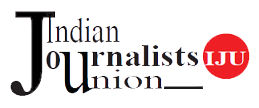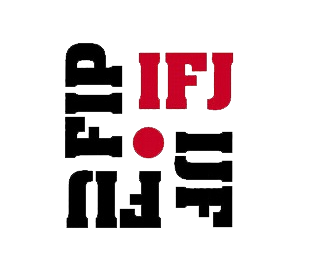......By Ramkung Pamei, President of Manipur Hill Journalists’ Union on the occasion of National Press Day
The global health crisis created by the deadly SARSCoV-2 that causes COVID-19 had infected more than 5.3 crore people resulted in 13.1 lakhs deaths around the world till the second week of November 2020. The World Health Organization (WHO) had once warned that the virus could infect 60% of the world population if left unchecked. The WHO also said that the best way to prevent and slow down transmission of the corona virus that causes the COVID-19 is to be well informed about it and how it spreads. Lack of awareness, knowledge and preparedness would put people and frontline workers at risk. However, misinformation and hearsays are spreading in a dangerous speed around the globe through social media. The media play a pivotal role worldwide enabling a rapid and widespread reach of public health communications. Therefore, media passing the latest information and the knowledge about the disease and its preventive measures must be faster, reliable and more accurate than the spreading epidemic.
During this hard time, journalism has become a dangerous profession as the global trend shows increase in number of attacks on journalists since last few years. More than 600 journalists have been killed across the countries in the last 6 years. Nine in 10 cases remain unpunished. Impunity reigns. Hundreds of journalists are imprisoned and on a daily basis journalist are attacked, beaten, detained, harassed and threatened. Further the outbreak of the COVID-19 pandemic has resulted in a weakening of fundamental rights such as freedom of expression, the right of access to information, and the right to privacy in many parts of the world. Several national authorities have declared states of emergency, resulting in serious restrictions of fundamental rights including freedom of expression. India, which is labelled as world’s largest democracy is among one of the countries where freedom of expression and freedom of press have faced serious challenges since last few months. Despite many protocols, guidelines and proposals, journalists still face a daily threat- and impunity continues to make the situation worse.
Siddique Kappan, a Kerala- based journalist who on October 5 was trying to reach the family of a rape victim in the Hathras district of Uttar Pradesh, was arrested and charged with sedition. The authorities did not allow the representatives of KUWJ to meet Mr. Kappan who was detained in Mathura jail. A Mathura court had on October 16 dismissed an application filed by the Kerala Union of Working Journalists seeking permission for them and a lawyer to meet Kappan. The court on October 20 extended the judicial custody saying that the police was yet to complete the probe. The Editor and owner of the Gujarati News portal Face of the Nation Dhaval Patel was arrested for publishing an article on his website, purportedly claiming that Chief Minister Vijay Rupani might be replaced over his handling of the corona virus pandemic in the state. An FIR was registered against him by the city Crime Branch on May 8 under sedition law and the Disaster Management Act. A case was registered with sedition charges against senior journalist Vinod Dubey, a BJP leader in Himachal Pradesh.
The International Federation of Journalists (IFJ) and International Press Institute (IPI), the two leading international media freedom organizations, in a joint letter to the Prime Minister Narendra Modi on October 22 accused the government of using the health crisis as an excuse to silence those who have exposed shortcoming in the government’s response to it. In the joint letter IFJ and IPI, urged Indian Prime Minister Narendra Modi “to take immediate steps to ensure that journalists can work without harassment and fear of reprisal and to direct the state governments to drop all charges against journalists, including those under the draconian sedition laws, which have been imposed on them for their work”.
The COVID-19 had negatively affected the media industry. It may be among the hardest hit industries. Studies suggested that 50% of the media companies have lost 90% of their business since March 2020. The pandemic impacted on both the regular or permanent employees and contractual or part time workers. Even the newspaper’s sales have gone down drastically mainly because readers fear of possible transmission through newspaper, which theory the union minister for Information and Broadcasting Prakash Javadekar has quashed. Circulations also come down due to non-availability of transportation facilities owing to the lockdown and hawkers refusing to deliver house to house.
More than 80% of advertising revenue has been lost by most of the publications. Most of the papers have drastically reduced their number of pages or redesigned the paper based on priorities. As such, some of the media houses including several prominent newspapers could not withstand the loss and had to close down the publications entirely. Besides, some other publications have started circulating their pdf version and still other updates on its websites even without printing a single copy.
Moreover, in view of the increasing number of court cases against journalists for their professional works particularly at the time of pandemic the UNESCO has issued guidelines for judges and courts, both at national and regional levels, that can serve as references to apply the theoretical frameworks of international law and human rights standards to protect and promote freedom of expression. The guidelines deal with the implications of a state of emergency and exceptional measures with reference to prevailing international law. These guidelines defined the requirements and criteria under which the adoption of restrictive measures on the fundamental right of freedom of expression is justifiable according to international and regional standards. UNESCO has been developing, since 2013 comprehensive programmes to raise capacities of judges and judicial actors (prosecutors, lawyers) and civil society on international and regional standards on freedom of expression and safety of journalists. We may hope that these guidelines will support the work of members of the judiciary and prosecution services in upholding the respect of the rule of law, freedom of expression and safety of journalists during and beyond the pandemic. In our country these UNESCO guidelines are of great significance in the context of the present criticism by legal experts, even by former judges against the state of judiciary and justice delivery system in India.
Therefore, the role of independent and vigilant media in checking this disinformation is essential in such a health emergency. During the Covid-19 crises, an overabundance of falsehood contents has been produced and shared with malicious motivation. In many countries including India political classes and corporates took advantages of the pandemic in spreading disinformation. In India communal hatred was spread at the beginning of the pandemic by making the Muslims 3 | P a g e responsible for the spread of the pandemic in the country after a number of persons attending the Tabligi event at Delhi tested Covid-19 positive. The critics of the Narendra Modi government say that the hasty imposition of lock down throughout the country without preparedness with banging of utensils and lighting of earthen lamp (diya) part of an infodemic to crack down the countrywide anti-Citizenship Amendment Act movement.
Random posting and forward of messages in the social medium such as WhatsApp and facebook are posing threat to the credibility of the media. This practice must be stopped so that the power of the media may be used to the advantage of the masses to enlighten them and to do away the fear. The UNESCO guidelines recommend principles to follow when dealing with the spread of falsehoods during the pandemic, including open communication by national authorities, promotion of independent media and media literacy, and due diligence on the part of social media companies to combat hate speech.
The role of the media must be to enable equal access to healthcare, end discrimination, and social stigmatization. The media has a role in controlling the outbreak, widespread infection, early detection, effective containment, mitigation measures and eradication. The interaction between media awareness and disease control is a two- directional approach. The role of the media must be understood and explored further as they will be an essential tool for combating the pandemic.




